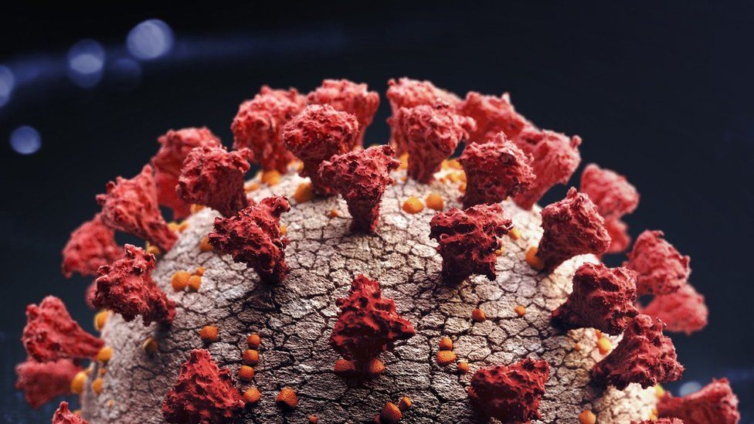A couple of weeks ago, a discussion that took some space in the media concerned some side effects of Covid-19.
The medical authority who was interviewed outlined some such effects of the disease as erectile dysfunction and mental disorders such as anxiety and depression. Unfortunately, as it happens sometimes, there was a misplaced emphasis on erectile dysfunction in men during the discussion and subsequently, social media ran with it.
Much as fear needs to be instilled in the minds and hearts of those bent on making a joke with the dreaded Covid-19 disease, communicating the effects of the disease on some recovered patients must be done with circumspection.
The communication must seek to inform, educate, encourage and restore and not leave room for people to play around ridicule or stigmatisation. In any community, the last one would want to see is the pointing of fingers at recovered individuals simply because of dreaded lifetime side effects that the disease may have left them.
Appropriate communication
The effects may be real facts and one may argue why it should not be communicated. The point here is the appropriateness to make a seeming public “announcement” out of it at this point in time. The pandemic is tearing deep into people’s skin and we want the infected to come out, get tested and receive appropriate life-saving treatment. It is not the time for the infected to hide because of fear of embarrassment.
For those contracting the disease, the youthful ones, in particular, to hear being discussed in the public arena the side effect of sexual abnormalities or even depression which could live with them for life could be another level of worry. Who is listening, and who is watching?
Survivors of Covid-19 could be made aware of possible side effects they are likely to go through on a personal basis and I am sure the doctors and health personnel are doing just that. However, we do not have to make a public spectacle of it as was done on social media a fortnight ago.
The point is, since the second wave descended on us, one has come to realise that Covid-19 is no longer a disease affecting nameless people. Now, those infected persons are being named. They have turned out to be people in our families, communities, and friends, acquaintances at work, Church, club or even school mates.
Proactive stance
Some have taken a proactive stance and come out publicly to open up about their status as a caution not to take the disease lightly. Some are sharing what they went through as their contribution to help with education on safety and adherence to safety protocols. It probably is not the easiest of tasks at this point in time and we must commend them.
The kind of society we live in is a very open one. There is definitely going to be whispers and the pointing of fingers. There would be the show of sympathy on the face of it but one cannot rule out the gossips behind their backs. Our communication therefore on Covid-19 and its related effects should help people not to lose their sense of self-worth but rather encourage them.
Crises communication
The last time I checked, the public campaign against stigmatisation is still running. It is a laudable communication strategy calling on all of us to help assimilate those who have recovered from the disease. We have key personalities used in the advertising to give messages of hope and indirectly asking all of us who have not been there, to walk a kilometre in the shoes of recovered persons.
No doubt Covid-19 has thrown our world into crises. But the point is, in crises situations, one does not communicate gloom and doom. One’s communications in times of crises is not to directly or indirectly, create more panic and fear or heighten anxiety. That is why there is always message segmentation in crises.
Those who are being recalcitrant with observing the safety protocols, especially with the wearing of face mask in public need some stern words or visuals to awaken consciousness in them.
To those who have been infected and pulled through, the message to them and their families should always be encouragement and restoration. Yes, there are side effects for most known diseases.
Should we not give messages of hope to restore rather than throwing alarming messages for social media to pounce on?
Latest Stories
-
Trump picks Pam Bondi as attorney general after Matt Gaetz withdraws
10 mins -
Providing quality seeds to farmers is first step towards achieving food security in Ghana
15 mins -
Give direct access to Global Health Fund – Civil Society calls allocations
3 hours -
Trudeau plays Santa with seasonal tax break
4 hours -
Prince Harry jokes in tattoo sketch for Invictus
4 hours -
Akufo-Addo commissions 200MW plant to boost economic growth
4 hours -
Smallholder farmers to make use of Ghana Commodity Exchange
4 hours -
I want to focus more on my education – Chidimma Adetshina quits pageantry
4 hours -
Priest replaced after Sabrina Carpenter shoots music video in his church
5 hours -
Duct-taped banana artwork sells for $6.2m in NYC
5 hours -
Arrest warrants issued for Netanyahu, Gallant and Hamas commander over alleged war crimes
5 hours -
Actors Jonathan Majors and Meagan Good are engaged
5 hours -
Expired rice saga: A ‘best before date’ can be extended – Food and Agriculture Engineer
5 hours -
Why I rejected Range Rover gift from a man – Tiwa Savage
5 hours -
KNUST Engineering College honours Telecel Ghana CEO at Alumni Excellence Awards
6 hours

